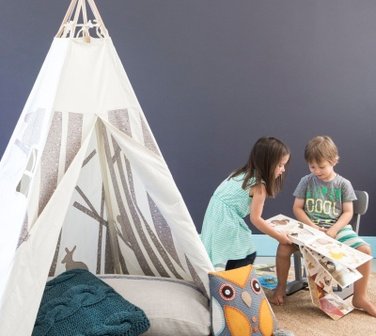Getting children to sleep is one big yawn
After several nights, weeks and sometimes months of toddlers waking during the night, parents will do just about anything to get them to sleep — including driving up and down the lengths of freeways, sometimes for hours.
It’s a last-ditch strategy that baby sleep consultant Caroline Radford has seen countless times as families try valiantly to get some sleep.
“There are a lot of families out there struggling with this issue, ” Ms Radford said. “All you need to do is drive around and see just how many lights are on at 2am to know you’re not alone.
“Parents need to know just how normal it is to experience sleep issues during toddlerhood. What tends to happen is that, after the age of two, people stop telling family and friends about sleep problems for the fear of being judged.
“But between the ages of two and three is when toddlers start to target the areas of sleep, toileting and eating in trying to gain some control in their lives. This is the time they start to exert their sense of independence and will refuse to go down or wake in the night and want to get into bed with parents.
“Often a move into a bed will trigger this new-found freedom. This stage of autonomous thought development is coupled with doubt. The toddler will be looking for the certainty of those they love and trust to set a loving framework of clear rules and guidelines. If there are no rules around what to expect, they may start wakening to challenge what the rules are.”
So prevalent is the sleep issue that Ms Radford’s business, Caroline’s Angels, works solely on word of mouth. The baby whispering consultancy, which she operates alongside business partner Caroline McMahon, provides full-time work for both — and often they employ other midwives and child health nurses in meeting the demand for professional advice.
“Sleep issues take up more than 90 per cent of our time, ” Ms Radford said. “Once people hear from their friends that there are some strategies which work, we gain new clients. We do almost no paid advertising. Parents just want an objective point of view and some ways to move forward.”
Ms Radford said that, while some parents were completely comfortable with toddlers sleeping in their beds or sleeping on a mattress beside the bed, others found the intrusion difficult and disruptive. In some cases couples were so sleep-deprived, it contributed to relationship breakdowns and elevated rates of depression.
“Statistically, there is so much evidence about the ongoing effects of a lack of sleep, both for parents and for children, ” she said. “Coming into school age, children with sleep issues are more likely to have other behaviour and eating issues. I always try to get clients to understand that sleep is the first rule you need to set.”
Establishing a framework — including set routines and boundaries for toddlers — was crucial to successfully changing damaging sleep habits. But families should make only changes they were comfortable with and which suited their situation and lifestyle.
“It’s your home so it’s your show, ” Ms Radford said. “Having a framework allows parents to show they are in control. Routines are the key way children learn rules and what is expected of them.
“You can increase the effectiveness of the routine by saying ‘After we have brushed our teeth it will be time to climb into bed’. Then back up your words with action — once they have brushed their teeth, guide them into bed.
“This way, you become believable and trustworthy and the child feels secure that what you said calmly was what actually happened.
“As you progress, you can start asking your child ‘you tell me, after we brush our teeth what’s the next thing we do?’
“Once they start owning the routine, they are beginning to understand how to regulate their own needs and self care. You are definitely on the right track for their future.”
Julie Holschier, community education co-ordinator at Ngala, which provides early parenting and early childhood services, said toddlers had vivid imaginations and would often practise in their sleep what they learnt during the day.
“When the disruption becomes detrimental, parents have to make a plan, ” Ms Holschier said.
“Some parents want that separation and others don’t mind their toddler getting into bed, or others are very happy getting up to their children. Couples have to decide what they want and have to be ready to make those changes.”
Toddlers needed consistency and boundaries as they formed strong attachments to their primary caregiver. If that caregiver was not as available during waking hours as they would like, toddlers often sought to be close to them at night, she said.
Established routines, a calm environment, promoting a toddler’s sense of responsibility and lots of parental praise would help parents gain a sense of trust and toddlers would be more willing to sleep in their own beds and comply with bedtime rituals.
“Children pick up on stress in the household, whether it’s in the budget or in the relationship, ” Ms Holschier said.
“Parents need to try to keep everything on an even keel so that a child’s anxiety is not heightened when it comes time to sleep. It’s also important to look at the bedroom. Are shadows catching on a teddy bear, making it look scary?”
It was also important to make sure toddlers were not too hot or cold and that they had a wind-down routine or a bedtime story before being expected to go to sleep.
© The West Australian
More lifestyle and family news: https://au.news.yahoo.com/thewest/lifestyle/









